#Derrida
Photo
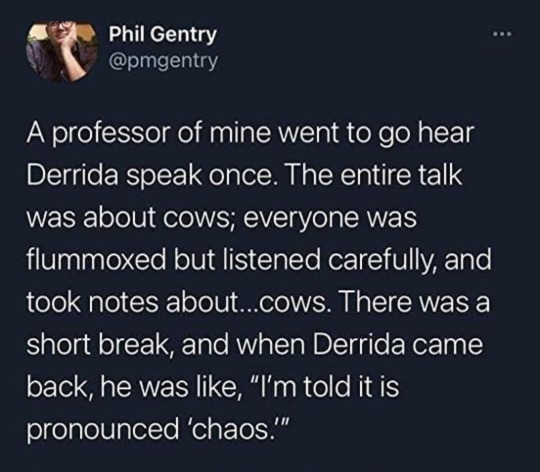
8K notes
·
View notes
Photo
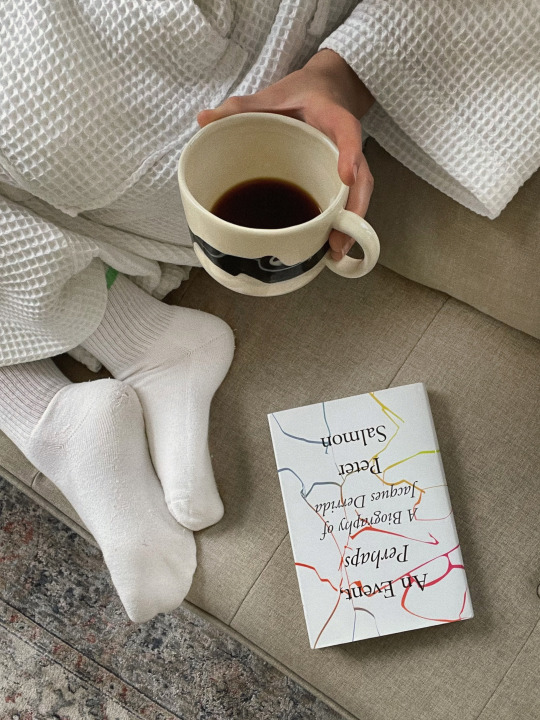
Lazy start to a rainy Sunday morning. Last night was games night with some friends, we stayed up till the early hours so we're still wearing sleepiness. Outside, the marathon has closed all the streets surrounding our flat and crowds have gathered to cheer on athletes, friends, loved ones. All a perfect excuse to open all the windows, have one more cup of coffee and do a little reading
#studyblr#studygram#studyspo#books#bookblr#booklr#reading#currently reading#read#jacques derrida#derrida#philosophy#literature#litblr#lit#sunday#weekend#london
263 notes
·
View notes
Photo


Ghost Dance (Ken McMullen, 1983)
#Ghost Dance#Ken McMullen#Pascale Ogier#Jacques Derrida#Derrida#quote#film#cinema#metaphor#ghost#ghosts#1983
1K notes
·
View notes
Text
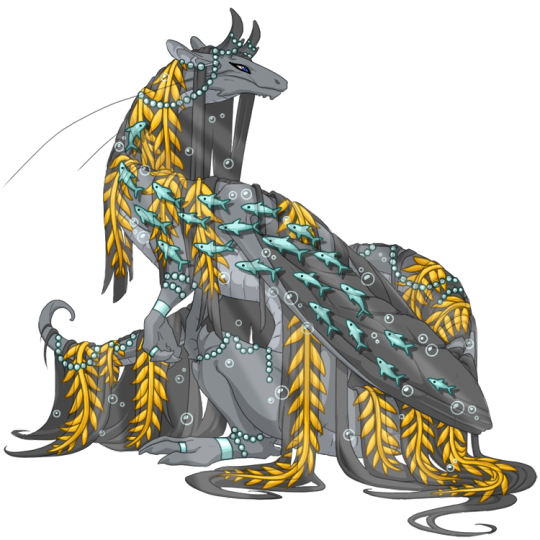
just finished my submission for the wavecrest saturnalia skin contest! this is actually my first ever time making a skin for one of the contests, so it’s pretty exciting :)
some previews:


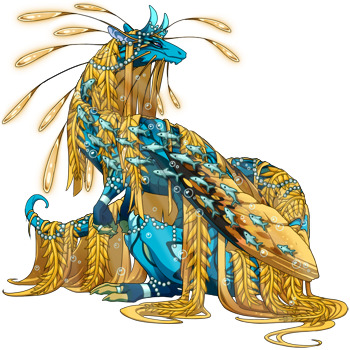
#art#flight rising#flight rising uma#fr uma#i’m never satisfied so i’m probably gonna make some edits later before i actually submit it lol#derrida
33 notes
·
View notes
Text
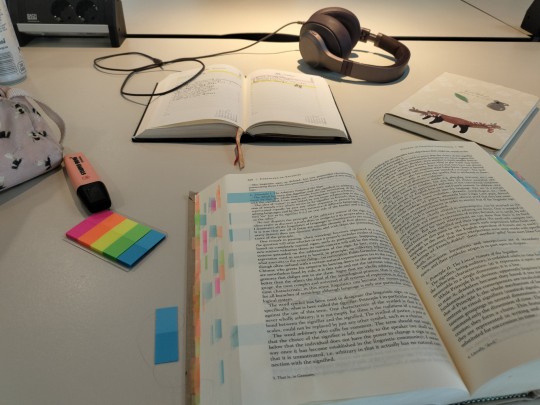
The last few days I have shifted over to a study of language and deconstruction, I have finally finished my readings of Derrida as well. From there I moved to postcolonial theory, which is one of my huge special interests.
If anyone would be interested in talking about literary theory, feel free to contact me!
#studyblr#study notes#dark academia#latin student#study tips#studying#studyspo#comparative literature#literary history#university studyspo#autistic#actually autistic#actually adhd#actually audhd#audhd studyblr#derrida#foucault#franz fanon#gilles deleuze#comparative lit student#university student#uniblr#university#student life#study motivation#study space#study hard#summer study
97 notes
·
View notes
Photo
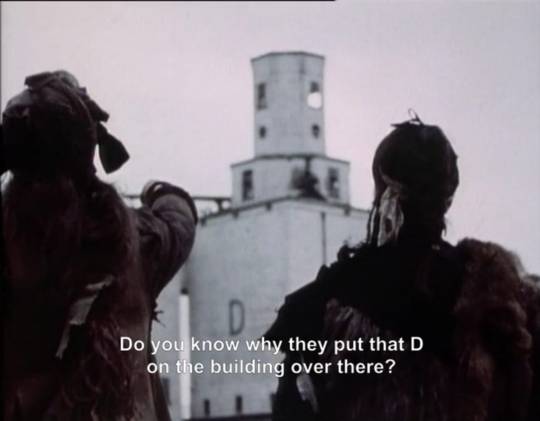


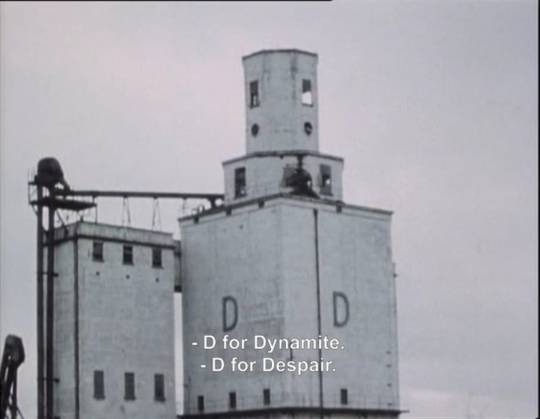
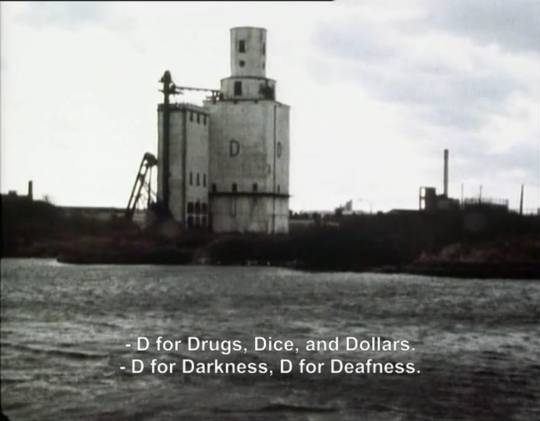


Ken McMullen
- Ghost Dance
1983
#ken mcmullen#ghost dance#ghostdance#pascale ogier#leonie mellinger#british film#1983#derrida#jacques derrida#hauntology#desire#destruction#dole#depression#death#despair#dynamite#deafness#darkness#drugs#dice#dollars
157 notes
·
View notes
Text
I finished Ursula K Le Guin’s The Farthest Shore yesterday, and it got me thinking about two things:
1) The relationship between truth and meaning.
2) The wisdom of accepting death.
The conflict of the book is established when it is discovered that people have lost their connection to the “true speech”, the language of creation, which means that wizards can no longer use magic, but also that everyone falls into nihilism, listlessness, and paranoia. People retain their regular language, but the language of magic is lost, and so they lose their grip on reality. They see everything as flat, without any transcendence in anything. Nothing is more significant than anything else, and so nothing is worth doing. People keep talking, but none of it means anything real.
The cause of this is someone trying to escape the fear of death by dying and coming back immortal, leaving a tear in the world that magic leaks out of. The fact that they have to first die to find immortal life suggests that death and immortality are in a way the same thing, and that this deconstruction is the cause of the spread of nihilism. The necromancer is able to send out a message to people’s dark sides, causing this change in them:
By denying life you may deny death and live forever!
This is reflected in the fact that the souls of the dead show an even more extreme embodiment of the emptiness and stillness experienced by those seduced by the message. The tear in the world is blurring the distinctions between life and death, and calling for people to hurry it along.
For Le Guin then, life is change and difference - rather like Octavia Butler’s message from Parable of the Sower that “God Is Change”. Maybe the key part of Butler’s poem for this though is “The Only Lasting Truth Is Change.” Seeking immortality is sort of denying reality. Le Guin describes each individual life as a wave on the ocean, and claims that seeking immortality would be like making the entire ocean one wave, so that it grows still. In other words, life cannot exist without other lives, and without a chance of ending. A single life that totalises all would be indistinguishable from death.
I’m with her on the first point, that a changeless life would be indistinguishable from death. Experience is formed through interaction, which inevitably changes both parties. This is ancient knowledge, which Le Guin no doubt gets from her passion for Taoism, but my favourite exposition is Donna Haraway’s Situated Knowledges. But if life is always changing, always unfinished, why could there not theoretically be an eternal life which does not totalise, which accepts its mutability?
I think here is where we run up against the tension between Le Guin’s commitments to true language on on side and contingency on the other. Nietzsche is famous for having pointed out that language is a host of metaphors. Derrida then took this further to point out that no word is self-contained, rather its meaning is dependent on so many others that it can never be pinned down perfectly to mean just one thing for certain. This includes the self. It stops and starts when we’re knocked unconscious, and its altered with every experience, every exchange of atoms. In a sense we die a lot - if we thing of ourselves as a being, rather than an emergent property of various processes. We can’t be perfectly described with a word, because we aren’t a constant thing anyway, irrespective of that final death.
But this is kind of a moot point as Le Guin’s story is concerned. Few of us ever actually seek immortality. And Le Guin is right to frame it as an impossible task. It plays a symbolic role for the equally, perhaps even more, impossible task of seeking control, constancy, solidity. Nothing is constant - The Only Lasting Truth Is Change. But for me this just makes the final change of death easier to accept, as just one more change that will leave the previous version of myself behind - only this time there won’t be a recognisably new version to take its place.
There is definitely a difficulty in accepting the indefinite fuzziness that comes to things when you look at them like this though, that can lead to the nihilism Le Guin was so afraid of. I think Le Guin answers this rather well though, when she says that we cannot help but do everything we do, want everything we want, feel everything we feel. We can’t actually avoid caring about things, especially if we throw ourselves into them. We don’t have to justify what we care about based on some sort of metaphysical truth, as if we could ever be certain of that - we just have to accept the inclinations given to us by the universe and act on them in a balanced way to make ourselves content. Don’t rationalise your feelings through strict force of will, pay attention to them and what the good asks of you. That’s actually from a different anarcha-feminist writer - Simone Weil - but it fits!
#ursula k. le guin#ursula le guin#le guin#donna haraway#earthsea#the farthest shore#friedrich nietzsche#nietzsche#derrida#jacques derrida#philosophy#existentialism#books#fantasy books#octavia butler#octavia e. butler#taoism#daoism#meaning#language#semiotics#parable of the sower#simone weil#immortality#death
71 notes
·
View notes
Text









Jino-chan times~
#戦国TURB#sengoku turb#fanart#jino-chan#molina#hitsuji#KG#nietzsche#kuma#usagi#gertrude#failure#bombo#gelsomina#soldier#nanoray#derrida#patra#doppa#alice b#blowout#sonorous face#tur#all these hashtags i went insane
30 notes
·
View notes
Quote
It haunts, it ghosts, it spectres, there is some phantom there, it has the feel of the living-dead-manor house, spiritualism, occult science, gothic novel, obscurantism, atmosphere of anonymous threat or imminence. The subject that haunts is not identifiable, one cannot see, localize, fix any form, one cannot decide between hallucination and perception, there are only displacements; one feels oneself looked at by what one cannot see.
Jacques Derrida, The Specters of Marx
345 notes
·
View notes
Text
"...the question of the archive is not, we repeat, a question of the past. This is not the question of a concept dealing with the past which might already be at our disposal or not at our disposal, an archivable concept of the archive. It is a question of the future, the question of the future itself, the question of a response, of a promise and of a responsibility for tomorrow. The archive: if we want to know what this will have meant, we will only know in the times to come."
— Derrida, J., & Prenowitz, E. (1995). Archive Fever: A Freudian Impression. Diacritics, 25(2), 9-63.
8 notes
·
View notes
Text
“Death left its old tragic heaven and became the lyrical core of man: his invisible truth, his visible secret.”
Michel Foucault, The Birth of the Clinic : An Archaeology of Medical Perception
#michel foucault#philosophy#continental philosophy#french literature#english literature#book aesthetic#dark academia aesthetic#dark academia#light academia aesthetic#derrida#cottage core#literature quotes#kafka#byron#shelley#oscar wilde#sartre#camus#the secret history#poetry#art#painting#existentialism#absurdism#postmodernism#dead poets society#henry winter#tagamemnon#achilles#taylor swift
140 notes
·
View notes
Photo
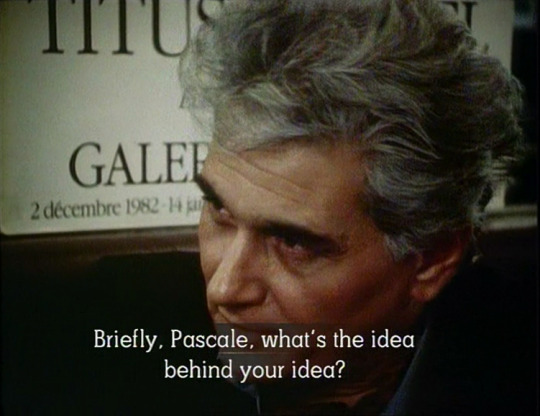
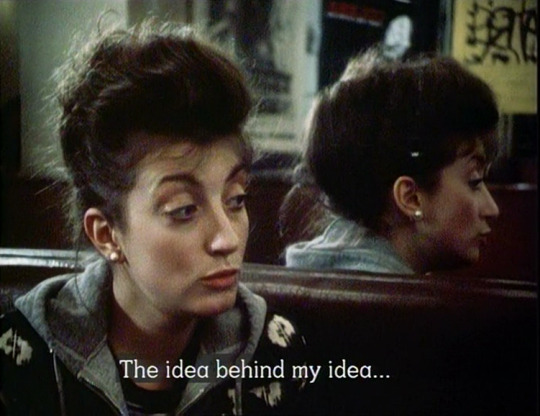

Ghost Dance (Ken McMullen, 1983)
409 notes
·
View notes
Text
Fear of writing
youtube
And there's a sort of panic in my subconscious (...) I've had the impression that I've done something criminal (...) And the implied command is this ''Stop everything! Take it back! Burn your papers!''
When I'm working, that vigilance stops and I'm able to do what I have to do [ and write ].
24 notes
·
View notes
Text
youtube
Geoffrey Bennington on Derrida and Deconstruction
9 notes
·
View notes

